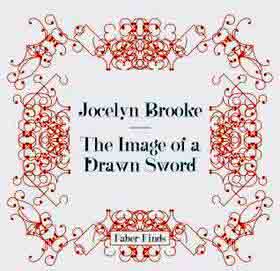From Laurence Inman.
My reading habits never fail to surprise me.
My first home was a slum in Ladywood. My parents were resolutely working-class. I grew up on a council estate in Longbridge. Until I was twenty-five or so my reading-food was completely predictable: Alan Sillitoe, D H Lawrence, Albert Camus, Kafka, Joyce. A chaotic mash of stuff, most of which I thought I ought to like, and some of which I did. (I’m leaving out work which rises above everything: Shakespeare, Tolstoy, Austen, Eliot – both of them.)
But for the last three decades the novels I have most enjoyed, and looked forward to devouring, have been written by people I would probably despise personally. Middle-class, comfortable, safe, living in the Home Counties or the Cotswolds, writing of that world in the 1950s. Not my type at all.
And yet I love them. Barbara Pym. Anthony Powell. Ivy Compton-Burnett. (Well, maybe not her.)
I’ve been forced to consider all this by the torrent of clever articles which have filled the arts pages of the posh papers lately in the wake of the ‘rehabilitation’ of Ford Madox Ford. A lot of them are claiming to be familiar with a long-forgotten writer who also deserves a revival. In many cases this writer is Elizabeth Taylor. (1912-1975)
She lived all her life in Berkshire, married to a fairly well-off businessman, and wrote twelve magnificent novels. I’ve read all of them, and not many people can say that. Start with Angel, if you want to take matters further. There is no better study of dogged self-delusion.
Back to Ford for a sec; he (and Conrad) saw that although, physically, we are always at the forward edge of the present, our minds and emotions almost never are. His prose-style reflects this. Strands and fragments of memory and feeling constantly retrace their steps. Odd events bob to the surface, just when you thought the water was calm.
It makes for a kind of English surrealism. That’s different to the European kind, which is a bit heavy-handed and crude. (Yes. The Trial.)
 There is a novel, beautiful and perfect, written by Jocelyn Brooke (1908-1966) which I suspect is now out of print and forgotten: The Image Of A Drawn Sword.
There is a novel, beautiful and perfect, written by Jocelyn Brooke (1908-1966) which I suspect is now out of print and forgotten: The Image Of A Drawn Sword.
I won’t tell you what it’s about because it would be impossible. Just find it yourself and read it. I envy you the joys ahead.


